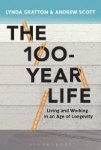J.D. Vance’s Hillbilly Elegy (reviewed here) has been on the New York Times’ list of best sellers for almost a year and his memoir is one of only 5 titles on Bill Gates’ summer reading list. In his insightful book, Vance illustrates how the consumer-oriented values and chaotic family customs of the working class limit their children’s chances for a prosperous future.
But that is not the whole story. In addition to suffering from their own dysfunctional behaviors, ordinary people are routinely cheated in subtle ways that are impossible to detect. Two new books illustrate how elites are advancing their own agendas, while abandoning a longstanding sense of social responsibility.
 Enrich, David. The spider network. Custom House, [2017].
Enrich, David. The spider network. Custom House, [2017].
Wall Street Journal editor David Enrich tells the story of British math prodigy Tom Hayes, who was convicted of criminal fraud in 2015 for manipulating Libor, the benchmark that underlies the interest rate on loans worldwide. From his first days as a trader in the City of London, Hayes learns that his sole objective is to make money. Working at a series of banks, he speculates on the companies’ own funds, using sophisticated pricing models. Hayes optimizes his performance by working with a group of bankers to change their Libor submissions in the direction favorable to his security holdings.
Executives at powerful banks, Citigroup, Goldman, UBS and others, were complicit; yet these influential people were never held accountable. Oversight from regulators was minimal. Meanwhile, people on Main Street who used a credit card, took out a variable rate mortgage or carried a student loan paid more for interest on those obligations. Those with pensions saw lower returns.
Also available as an audiobook on CD, an audiobook on OverDrive, and an eBook on OverDrive.
 McDonald, Duff. The golden passport. Harper Business, [2017].
McDonald, Duff. The golden passport. Harper Business, [2017].
The Harvard Business School (HBS) proudly claims to educate leaders who make a difference in the world. But business journalist Duff McDonald holds HBS to blame for the key problems in America today — growing inequality and the flawed structure of today’s shareholder capitalism. As the most prominent and largest graduate business school, HBS has shaped countless companies, but also the world’s financial system, the economy and society itself. An HBS MBA is the “golden passport” to influence and wealth.
McDonald explains that HBS created the Socratic case method to train MBA students to operate in an ambiguous environment, to diagnose problems and frame solutions, to prioritize, communicate and act. But he also argues that the case method is backward facing and has armed its graduates with conventional answers to conventional questions. McDonald holds Harvard faculty members responsible for the theories that empower executives to increase stock prices by laying off employees. He also criticizes the pervasive focus on money within the school. MBA’s flock to lucrative consulting and investment banking careers. Administrators fixate on raising money from alumni. Faculty members multiply their salaries by serving as consultants for corporate clients. While the institution revolves around making money, McDonald calls for HBS to live up to its aspiration to make the world a better place.
Also available as an audiobook on CD, an audiobook on OverDrive, an eBook on OverDrive, and on Notable Business Books Kindles at the Ford Library.
© Meg Trauner & Ford Library – Fuqua School of Business.
All rights reserved.
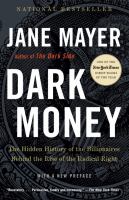 Mayer, Jane. Dark money : the hidden history of the billionaires behind the rise of the radical right. Anchor Books, 2017.
Mayer, Jane. Dark money : the hidden history of the billionaires behind the rise of the radical right. Anchor Books, 2017.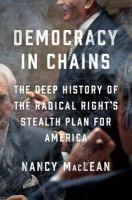 MacLean, Nancy.
MacLean, Nancy. 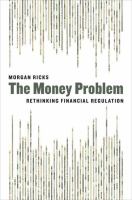 Ricks, Morgan.
Ricks, Morgan. 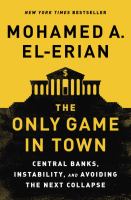 El-Erian, Mohamed A.
El-Erian, Mohamed A.  Milanovic, Branko.
Milanovic, Branko. Enrich, David.
Enrich, David.  McDonald, Duff.
McDonald, Duff.  Stories about powerful people behaving badly make good beach reading, especially if the protagonists are rich financiers and they come to a bad end. Extra points if the books illuminate the workings of Wall Street.
Stories about powerful people behaving badly make good beach reading, especially if the protagonists are rich financiers and they come to a bad end. Extra points if the books illuminate the workings of Wall Street. 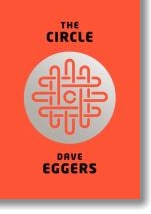 The film The Circle was released last month and has already grossed $170 million. Reviews have been negative, but that has not stopped readers from wanting to read the book that the film was based on.
The film The Circle was released last month and has already grossed $170 million. Reviews have been negative, but that has not stopped readers from wanting to read the book that the film was based on. 



 Retired basketball player and sportscaster Bill Walton is “the proud and fortunate son of a librarian.” He proposed
Retired basketball player and sportscaster Bill Walton is “the proud and fortunate son of a librarian.” He proposed  Fellow athlete Abby Wambach recommends
Fellow athlete Abby Wambach recommends  Alan Greenspan’s biography,
Alan Greenspan’s biography,  No surprise that several people chose
No surprise that several people chose  Fuqua faculty member’s Dan Ariely’s newest best-seller,
Fuqua faculty member’s Dan Ariely’s newest best-seller, 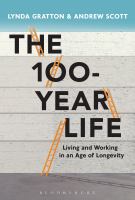 Gratton, Lynda and Andrew Scott.
Gratton, Lynda and Andrew Scott. 